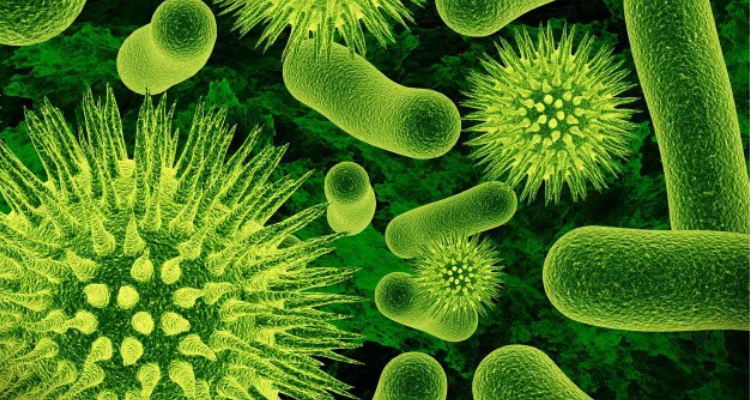.jpg?width=750&name=follow-me-to-lovcen_t20_LAKyB1%20(1).jpg)
From food sources to absorption, from individual biology to recognizing symptoms, we’ve got a lot to talk about when we talk about B12 deficiency. B12, though, is crucial to our bodies’ healthy function—so it’s worth the conversation.
How do you recognize if you’re experiencing a deficiency? How do you supplement or adjust your diet? And what will your body endure if you don’t make a change?
Read on to find out.

What is B12?
Vitamin B12 is typically known for its role in energy support, nerve health, and the production of many of our bodies’ needed substances, including:
• DNA
• Lipids (fats)
• Red blood cells
• Proteins
• Hormones
The vitamin B complex contains other B vitamins, as well, and each has its own, specific role to play in your health. Still, general references to the B complex will always point to its place in helping the cells produce energy.
B12 is water-soluble. It functions as a cofactor for an important enzyme called methionine synthase. That enzyme contributes to the conversion of one substance to another to create and form a methyl donor called SAMe.
SAMe donates to almost 100 different substrates in your body, including DNA, RNA, and neurotransmitters.
Symptoms of B12 Deficiency
The symptoms of a deficiency in this area are numerous and varied. Further, they are also symptoms of many deficiencies or other nutrition issues, as well as sicknesses unrelated to deficiency.
That’s why, if you see symptoms on this list that feel familiar, it’s important to see a doctor to determine if you are experiencing a lack of B12 in your diet or something else entirely.
Symptoms include:
• Appetite loss
• Depression
• Memory loss or difficult recall
• Cognitive issues
• Numbness in hands or feet
• Anemia
• Yellowing of the skin
• Constipation
• Weight loss
• Weakness
• Fatigue
• Sore tongue or mouth
Because symptoms vary in intensity and in when and how they present, a visit to your healthcare practitioner is in order if you experience any or all of these issues.
Causes of B12 Deficiency
According to the National Institute of Health’s Office of Dietary Supplements, adults should get about 2.4 micrograms of B12 per day, while pregnant or breastfeeding women should get about 2.8.
Several conditions can lead to a B12 deficiency, though it’s not a common concern, per se. The CDC estimates that 3.2 percent of adults over age 50 are deficient, while about 20 percent ride the line between low levels and deficiency.
With that knowledge, we can assume that age is a factor in low levels of B12. And we’d be correct. A condition called atrophic gastritis, from which almost one-third of adults over 50 suffer, interferes with the body’s absorption of B12.
That’s not to say that those under 50 are guaranteed not to experience a deficiency, though. Atrophic gastritis is a digestive condition – and other conditions that affect the digestive system, like celiac disease or Crohn’s, can also cause interference with absorption.
Other possible causes:
• Pregnancy
• Overactive thyroid
• Bacterial imbalance in the gut
• Weight loss surgery or stomach surgery
• Immune system disorders
• Heavy alcohol consumption
• A diet free from animal products
Solutions for B12 Deficiency
The approach to treating a B12 deficiency will depend on the cause, while prevention is always a good bet. Sometimes, though, prevention doesn’t cross our minds; because the liver can store a 5-year supply, we may not realize we’re missing B12 in our diets.
If the cause is an autoimmune condition or pernicious anemia, you may need injections or prescription levels of B12.
It’s important to remember that a supplement is not always the first choice for a deficiency. If you struggle with absorption due to any of the conditions mentioned above, the B12 you supplement with might never offer the support you’re looking for—but that’s a conversation to have with your doctor.
If the cause is lack of B12 in the diet, changing your diet accordingly is always the first step. But that can be tough when you make a conscious choice not to eat animal products. Nutritional yeast is a good, vegetarian source of B12.
Still, this is where supplements come in. If your diet doesn’t allow for a sufficient amount of B12, and you don’t have absorption issues, a supplement may be the right choice for you.
B12 supplements are recommended for:
• Athletes
• Vegans and vegetarians
• Those who need GI tract support*
• Cardiovascular support*
• Ongoing fatigue and weakness*
Have you experienced a B12 deficiency? How did you address it? Share your story in the comments section below.
If you’re interested in learning more about the vitamin B complex, click here.

*These statements have not been evaluated by the Food and Drug Administration. This product is not intended to diagnose, treat, cure or prevent any disease.







.jpg?width=750&name=follow-me-to-lovcen_t20_LAKyB1%20(1).jpg)



-1.jpg)






